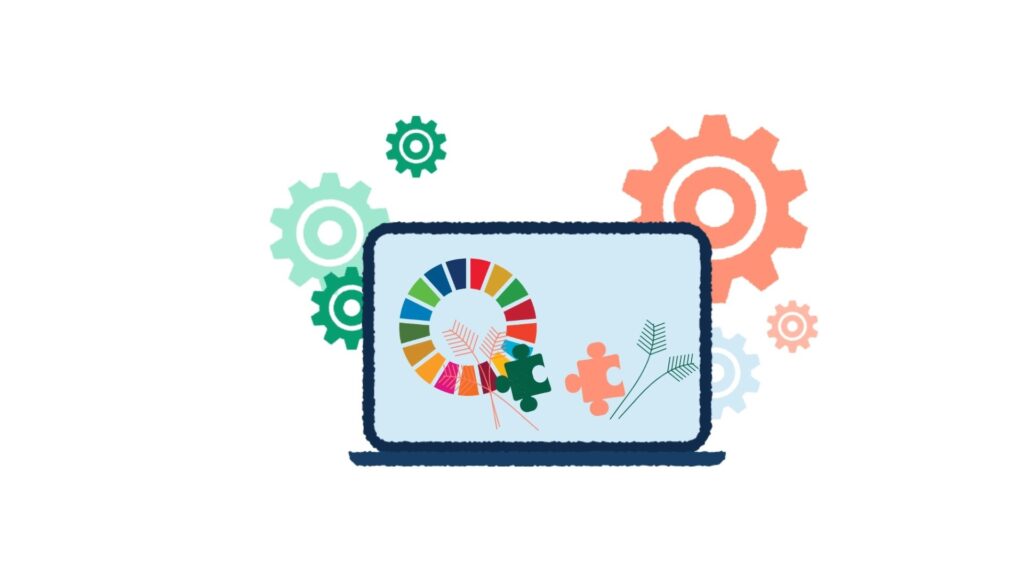The testament of effective leadership strategies is measured during a crisis. When external, as well as internal circumstances, are in favour, the leadership strategies are supposed to perform well, if not screwed by carelessly taken wrong steps.
A crisis, in general, is referred to as experiencing a time of great difficulty, danger, or suffering having a serious impact on the business. Most of the time it comes unpredictively for any business regardless of sizes or types.
Take the example of COVID19 which is disrupting the global supply chain, impacting every business, halting human lives the way or the other.
Such a crisis if considered from a positive perspective could be regarded as a great opportunity to leave your legacy as a successful leader.
The true litmus test of leadership is done based on how effectively you implement the leadership strategies to pivot the business.
You can either act according to the management practice to deal with the crisis by following a step by step guide or you can act as a leader. Because there is a thin line between Leading and managing. Management alone is not enough to tackle such an unprecedented crisis without having effective leadership strategies in place.
There are several studies conducted on figuring out the best leadership practices in a crisis. For example, the ghSMART research team in Harvard Business Review has conducted an extensive 21000 leadership assessments among the G-suite executives and recommended key 4 behaviours that help leaders manage a crisis and move forward.
In the early stage of my career, I faced such a crisis while leading a large team of a fast-moving consumer goods business. It was due to the acute political unrest in one of the South Asian countries.
This crisis brought major life-threatening interruption in Business impacting thousands of people involved in the ecosystem. Of course, that national-level crisis can not be compared with the scale of such global pandemic.
Still, the key principles could be looked upon for inspiration since I got the opportunity to implement some of the leadership strategies to effectively lead the team during that crisis.
Behaviour blended with actions enables you to build effective leadership strategies.
I am sharing 13 such key ways for you to master your Leadership Strategies and pivot the business in crisis.
These strategies are derived by deeply reflecting on the insightful discussion (took place during the early outbreak of COVID19) led by the UN Global Compact (who is running #unitingbusiness campaign — a call to companies to take collective actions) academic researches and from my experience in the transformational leadership domain.

I am sure many of you as the business leaders are already implementing many of such strategies. But a conscious effort and awareness by looking at these strategies could set you apart as a successful transformational leader when the crisis like the pandemic becomes the new normal.
1. Keep a holistic strategic leadership mindset and act accordingly
Your mindset is exceptionally powerful on the grounds that determines how you think, observe the situation, process information and eventually take actions.
The first and foremost strategy to confront any crisis is to be humble to the situation and judge the profundity of it without being biased. You will get closer to the right perspective to formulate your response by responsibly running the business.
Holistic mindset lets you explore the bigger picture of the acute situation thus letting you take the right action for the greater impact.
2. Practice purpose-driven leadership strategies
Purposeful leadership strategies have solid moral qualities which are pointed toward serving others. Business leaders who are driven by purpose could create a much more stable world while succeeding in business performance. The defining fact ponders how you treat the global issue as your business issue.
Try not to turn into an incompetent leader while being under pressure in crisis. When someone with power has toxic effects on their subordinates and followers, largely of being unaware of their own limitations and unjustifiably pleased with themselves, that’s is the point at which the incompetence in leadership gets noticeable.
You can use the self-assessment tool to test your likelihood of turning into an incompetent leader. Perhaps, this could assist you to become mindful and act to improve by being conscious.
3. Transform the circumstance into an opportunity
Looking at problems will bring more problems, looking at solutions, will bring alternative solutions.
Leaders during such crisis moments see more opportunities rather than being stuck in the problems. Asking the right questions is the way to go. The answers will take you towards the direction to naturally assess the situation and overcome the crisis.
Look for alternatives as suggested by Michael Maoz who is the senior vice president of innovation strategy at Salesforce. He emphasises more on leveraging the opportunity for future by reinventing the purpose and goals and be more people-focused and empathetic.
However, you still need to be careful in grabbing the opportunity. Zoom has a great lesson in this case. It had 10 million daily users which dramatically grew to 200 million daily users within a matter of weeks. But this unprecedented growth also brought a massive privacy concern for the users.
So while looking at the opportunity, have clear control over the expansion of unintended growth.
4. Be competent in strategic and systems thinking
During a crisis, natural human tendency is to concentrate on micro operational issues.
It becomes challenging to think strategically if you are too much inclined towards micro-level operational execution as a leader.
Strategic thinking should set the map of reaching a certain goal(s) through an easy way while being flexible to adapt as situation demands.
Systems thinking is defined as the disciplined approach for examining problems more thoroughly and accurately before acting.
You can use several tools for system thinking. These will help you by bringing the range of choices while solving a problem. Because you will understand the impact of the choice on the other parts of the systems. Therefore, the right decision will be possible to make.
So it is important to measure the trade-off and minimize the severity of the impact based on informed choice. Competence in strategy and systems thinking need to be blended together as part of your leadership strategies in a crisis.
5. Keep eyes on the operations
In an ideal world, leaders should not get too much into micro-level operational stuff. However, when the global economy is at stake, during such a global crisis, it is utterly important to have watchful eyes on the operational outlook of the business, especially on the cash flow/liquidity situation and fund inflow plan.
People are the heart of your business, but consider cash flow like the blood in your business. So take extra care and plan ahead of time.
6. Be empathic towards your team & protect them
Being a leader in the business brings bigger responsibility for the community involved in the business.
Such community ranges from the internal team (employees, contractual etc) to external stakeholders like small supplier, distributor, contractual, customers etc. You must have the attitude and a true reflection of that in terms of ensuring security, safety, stability.
Many companies started to let go of employees just after the outbreak of the pandemic. Volvo truck has put 20000 staff in Sweden on a short-term, temporary lay off-scheme. My curious mind wonders, how come such large well-established companies can not retain their employees for 3–4 months!
The Guardian reported a piece of leaked unfortunate news about Amazon executives who reportedly fired a worker labelling him “not smart or articulate”.
But the fact was the employee helped to organize a work stoppage at the company’s warehouse on Staten Island, New York, in protest over a lack of protective gear and hazard pay for employees.
This is the last thing ever you would be expected to do as the leader in a crisis i.e. not showing empathy towards your people.
Even if you can’t afford resource-wise, still show the authentic intention, a strong and honest attitude to protect your team.
The CEO of Gravity — Dan Price, made an excellent example when he was faced with the dilemma of laying off 20% of employees or going bankrupt.
He instead had open dialogues with the employees and collectively figured out a way where all the employees took voluntary pay cuts saving the company for the next 10 to 12 months without any layoff.
Let your people know how truly you care for them. The collective solution will make you stronger as the leader.
Communication with the right information is important. Be surrounded yourself with experts for reliable and transparent communication. Make the key message loud and clear. Give attention to how empathetically it is being communicated. Moral behaviour is a path to financial performance.
A relevant read: 5 steps to practicing compassionate leadership during a crisis.
7. Be flexible and adaptive to business not as usual
Flexible and adaptable are pretty close in meaning with a very fine distinction. Flexible refers to short term alterations whereas adaptable refers to long term changes.
The world is being changed very fast in both the directions long as well as short term. The demand for certain products and/or services goes high, the demand for other products and/or services demand goes down.
Be flexible to such dramatic change with keeping the learning spree open. This is completely a not business as usual situation. So you can not expect to lead your business as usual.
Take drastic measures. Be very reflexive. Do not hesitate to relook your business model, try out different ideas.
Do a quick check of your different ideas using the business model canvas. It will help you to determine how your idea could become a source of good business under the changed circumstance.
Unilever took action to product donation of soaps and sanitiser of at least €50 million. They have adapted their current manufacturing lines to produce sanitiser to use in the hospitals, schools and other institutional settings.
Trigger more business not as usual activities through donation, providing information, educate the community. Your business performance will reflect on how you treat your community by giving back.
As the leader, you also have to be adaptable to the new way of working. Exploit the advantages of technology, even if you are not very proficient using different platforms. It will change the way you conventionally work and adapt to the new way of work from home.
8. Engage and ensure multi-stakeholder response
A strong multi-stakeholder engagement must be adapted in the core of the business model. Even if it is not there at the moment, be fast to conduct a multi-stakeholder mapping.
Proactively engage, integrate and collaborate with other businesses, government, civil society, private sector, administration, media and the like based on the needs of yours and the ecosystem.
The benefit is not only in helping them out but it will also secure your presence by asking for support when in acute need.
Reach out to other leaders and unite the business communities for the greater good. If no one is coming forward, you take the lead. Don’t be afraid to set the trend.
9. Exercise upward leadership externally
COVID19 like crisis compels the government to deal with legislation, create and impose new rules.
The government administration, in most of the case, is not the best business brain out there. Get closer to the administration.
Private business should reach out to the government. Before imposing any legislation, help them look through it.
For example, if locking down hampers the supply chain and thus leads to other issues, upscale the problem before it is too late and too big of damage.
Maybe stopping the supply chain is not the best solution at that moment. This judgement is hard to make by the authorities. So you have to perform upward leadership by engaging key policymakers and influence them.
10. Have agility in your leadership strategies with co-creation & inclusiveness
Speed to decision makes a tremendous difference. The agility in action is the blend of risks and reliance. It largely depends on your ability to take calculated risks by measuring it but not taking a long time.
Involve people, especially the youths who are quite innovative. Engage them to solve the problems. Engage the young people in the first response for co-creation.
As a leader, you need to rely on the front line leaders/team members. Such a crisis which grows exponentially demands even 10X faster action compared to ordinary time. That is only possible if you are able to act inclusively, taking everyone on the same page.
11. Take care of your inner mastery
To be composed and in control as a leader, you need to master your inner game before you master the outer game.
Your role is very crucial which demands you to be at the centre, being calm and present at the moment. This is the name of the inner game.
You have to have a sense of urgency in taking actions. Be mindful even more in urgent situations.
Have empathy for you. Give utmost importance to the mental health of yours and the team and take care accordingly. There are well-researched steps that you can consider to master your personal leadership in times of crisis.
People do not see the future while being in isolation during a crisis. As a leader, you should come forward and connect them. Show them the future. Spread positivity, Consider human first.
12. Be fearless in exercising your leadership
Do not get scared about the things which are not in your control. Often being in crisis, we are forced to overthink about everything. The spillover effect of this overthinking gets worse with time.
Keep focusing on those which you can control. This perspective will help you to refrain from overthinking and remaining unproductive. You have to take the situation easy.
Get connected with others, even if it is your competitor, to understand their perspective. It always boosts up your thought process by iterating with others. Here you can listen to an interesting podcast on leading through crisis at Hello Monday.
13. Follow the 10 principles of the UN Global Compact
Being the leader, you should have self-awareness and knowledge about sustainable ways of doing and leading business.
Sustainability begins with a principles-based approach to doing business. Respect and follow the 10 principles of doing business recommended by the UN Global Compact. They are divided into — human rights, labour, environment and anti-corruption. By following these 10 principles, leaders not only uphold their basic responsibilities to people and planet but also set the stage for long-term leadership success.
I have come across a brilliant article recently published in the HBR review. It is about How you respond to a crisis will have repercussions for years to come.
Crisis never stays forever. It ought to be over. In the post math of the crisis, the business will be measured based on the bigger impact on the community, especially its impact during the crisis.
People will hold businesses accountable for the standards of their conduct. The crisis will lead people to realize more about the importance of sustainable development goals.
So do not fear to reinvent society through exercising the above key leadership tactics during a crisis.
Watch this highly relevant Tedtalk by Rabbi Lord Jonathan Sacks where he talks about the thoughts on how we can navigate the coronavirus pandemic with courage, hope and empathy.
Business is all about people. You do many things, in the end, you deal with real human beings. Many successful businesses consider “customers-focus” as the key success factor. The fact still remains that it is also the people you are considering at your core.
Being in the business management profession around 10 years, I have faced numerous challenges.
Challenges to manage team challenges to bring excellence in the ecosystem, challenges in handling difficult customers, challenges of closing critical deals, challenges of revamping the weakest business, challenges to accelerate business growth, challenges to build and maintain partnership in the national and international scale, challenges of developing a sustainable business.

The difference between success and failure in business has always been the people in each of the moments. Be it the team, employees, customers, consumers, markets or be it partners management.
If you are to be successful in business, you are to be successful in leading people.
That’s what I have “learnt by doing” over the years. All the transformation we aim to do, ignoring the people aspect will only fail us. So consider people first. This approach will set your ground to master your leadership strategies, especially during a crisis.






